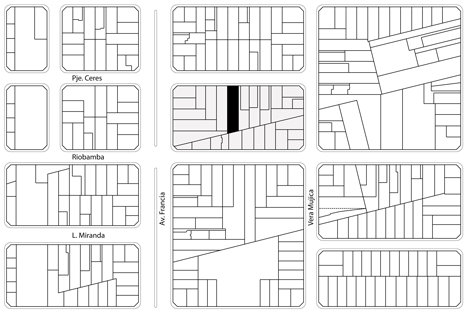Faceted concrete T-shape facade fronts courtyard house in Santa Fe
Triangular facets give a folded appearance to the bare concrete facade of this house in Argentina by local architect Nicolás Campodonico (+ movie).

Named Casa T&G, the two-storey home is located in the centre of Rosario – a city in the Santa Fe district of Argentina.
Nicolás Campodonico conceived the house as a concrete volume sandwiched between two courtyards. The first of these is screened from the road by a faceted concrete facade, while a glazed wall flanks a second one at the rear.
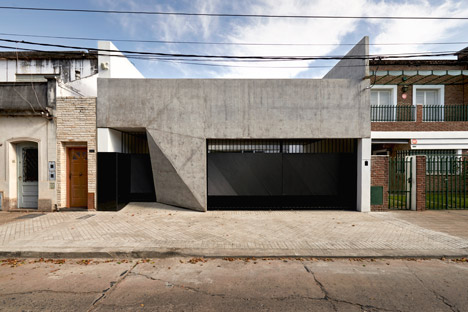
A combination of prefabricated and cast in-situ concrete was used to create the opaque T-shape, designed to screen the private interior spaces from the busy street.
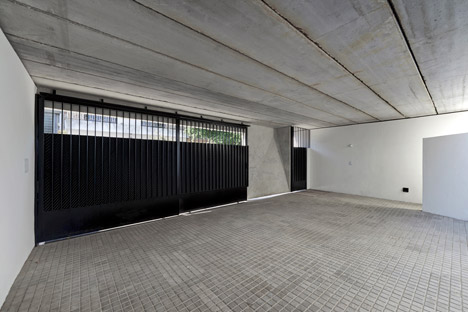
Pedestrian and vehicle entrances are separated by the down-stem of the T, which appears to have been folded diagonally along its centre to give different emphasis to each.
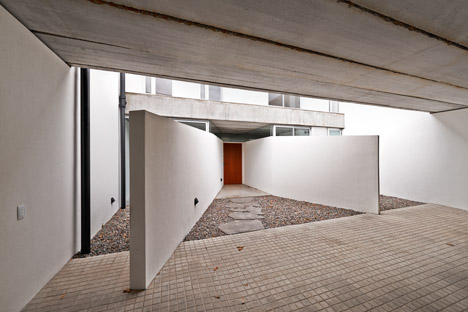
"Once inside, the space sequence – covered-opened-covered-closed-covered-opened – and the different atmospheres created by light and materials, propose a tour," explained Campodonico.
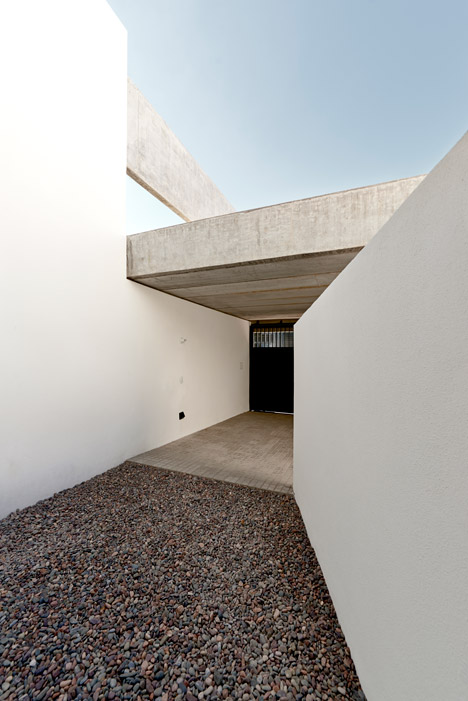
"This variety of sections provides spaces with different dimensions and also various light entrances that liven them up and put them in tension," he added.
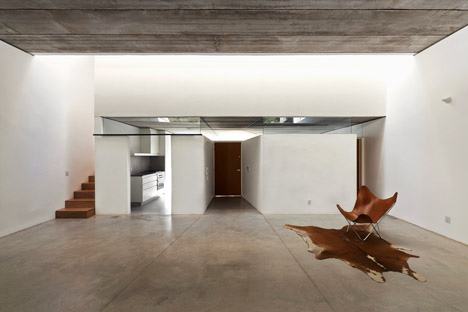
Black metal gates with diagonal grillwork cover both entrances, leading through to a paved and covered parking space that transitions into the gravelled courtyard. Here, two slanted walls create a funnel-shaped corridor towards the living spaces, and stepping stones mark out a pathway across the gravel.
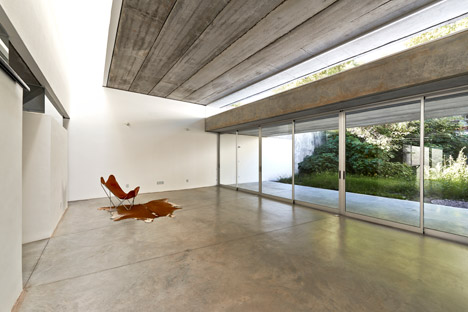
These white walls extend into the house, flanking a kitchen to one side, and a bathroom and bedroom to the other. Clerestory windows bridge the gap between the top of the short angled walls and the concrete ceiling slab.
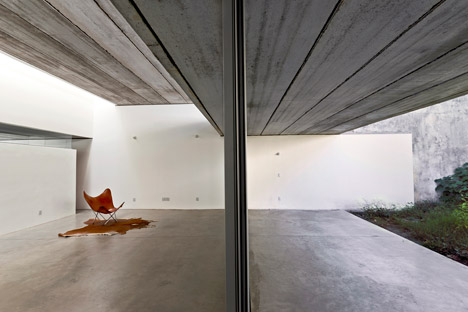
A large living room with polished concrete floors, white walls and exposed concrete ceiling slabs occupies the rest of the ground floor. A glazed wall at the back of the space has wide sliding doors that open onto a terrace and a garden beyond.
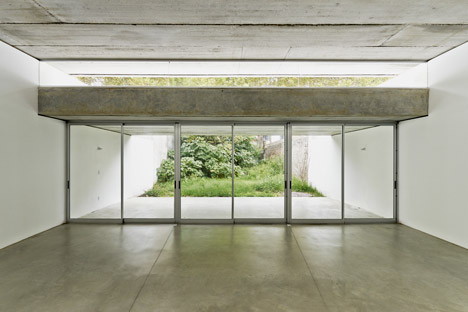
A thick strip of concrete, set just slightly lower than the internal ceiling height, spans the boundary walls to provide a canopy for the terrace.
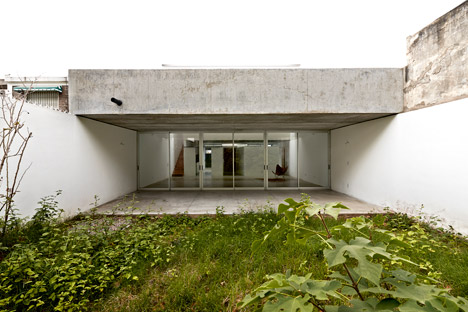
The gap between the two slab heights is filled by a slender strip of glass, matching the height of the clerestory windows of the bedroom and kitchen.
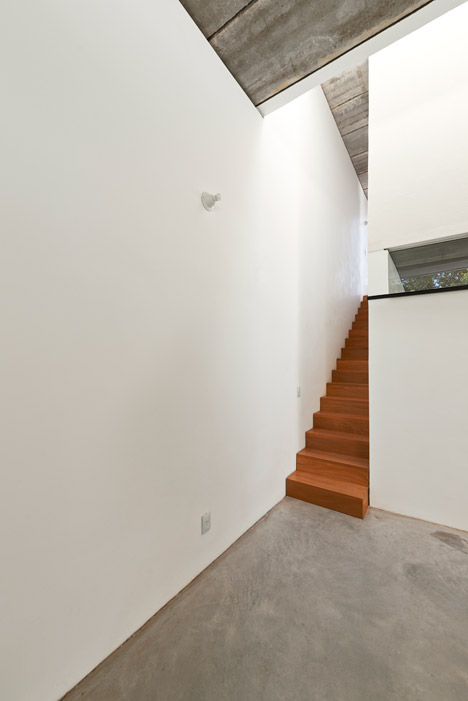
Wooden stairs lead from a well by the kitchen to a bedroom and bathroom with matching wooden floors on the upper level.
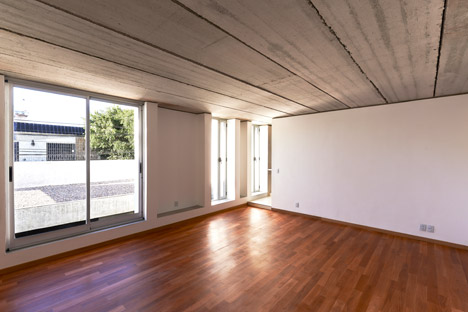
Floor-to-ceilin
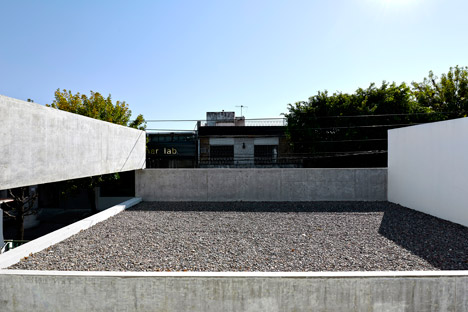
An oblong section of grey concrete extends from one side of the upper storey and rests on top of the facade, creating a partial screen from neighbouring houses.
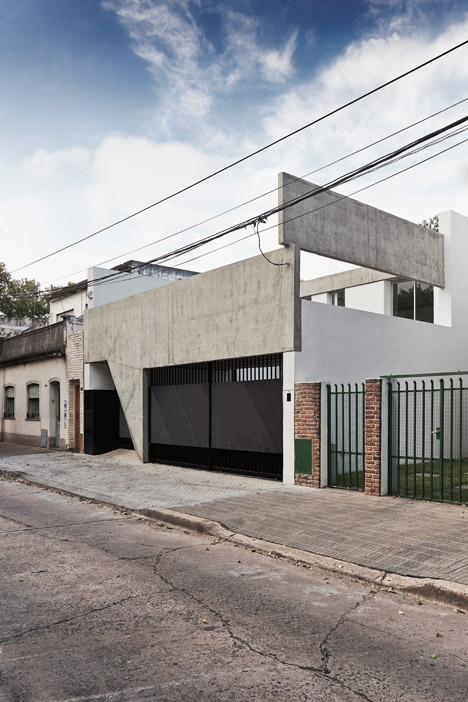
Photography is by Martin Lavayen.
Project credits:
Architect: Nicolas Campodonico
Collaborators: Martin Lavayen, Tomas Balparda, Pablo Taberna, Virginia Theilig, Soledad Cugno
Engineer: Carlos Geremía
